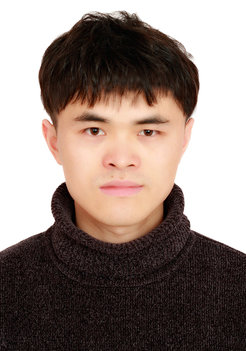Rotating black holes in space-time: Otto Hahn Medal for Dr Siyuan Ma
A long-standing problem in general relativity
Einstein’s theory of General Relativity describes how the four-dimensional spacetime fluctuates in response to energy and matter fields and is stated in a system of equations called Einstein field equations. Among the many explicit solutions of these equations, the Kerr solutions – named after the New Zealand mathematician Roy Kerr who found them in 1963 – are particularly interesting since they describe rotating black holes.

Even though Einstein’s theory describes the universe we live in, the underlying mathematics remain enigmatic. To test Einstein’s theory and to establish the astrophysical relevance of the Kerr solutions to the equations, mathematicians have to show if these are stable against small perturbations or not. That is, starting from a current state close to a Kerr solution, to find out if the state of evolution at any future time remains close to a Kerr solution or not. If not, these solutions will only exist in the mathematical realm and have no significance from a physical point of view. “This problem is called the “black hole stability conjecture”,” explains Siyuan Ma. “It’s one of the most important open problems in the field of General Relativity, and remains open in spite of the advances in the past half century.”
During his PhD, Siyuan Ma considered models of high accuracy and provided the dynamics of the evolution. Together with his supervisor Lars Andersson and colleagues, he proved for the first time the linear stability of these solutions, the second last step towards proving this conjecture. His results have given scientists even more confidence that Einstein’s field equations match reality and that the conjecture will be fully resolved in the near future.
The awardee
Dr Siyuan Ma (born 1992) did his PhD studies at the Max Planck Institute for Gravitational Physics in Potsdam in the Geometry and Gravitation research group lead by Prof Lars Andersson. His doctoral dissertation is also awarded a silver medal of Doctor thesis for New World Mathematics Awards in 2019. Siyuan Ma is currently a post-doctoral researcher at Sorbonne University in Paris.
Recognition for excellent junior scientists
The Max Planck Society has honoured up to 30 young scientists and researchers each year with the Otto Hahn Medal for outstanding scientific achievements since 1978. The award comes with a monetary sum of 7500 euros as recognition. The prize is intended to motivate especially gifted early career researchers to pursue a future university or research career. Since 1978, more than 1000 scientists and researchers have been awarded the Otto Hahn Medal. Dr Siyuan Ma received this distinction for his PhD thesis entitled “Analysis of Teukolsky equations on slowly rotating Kerr spacetimes”.










